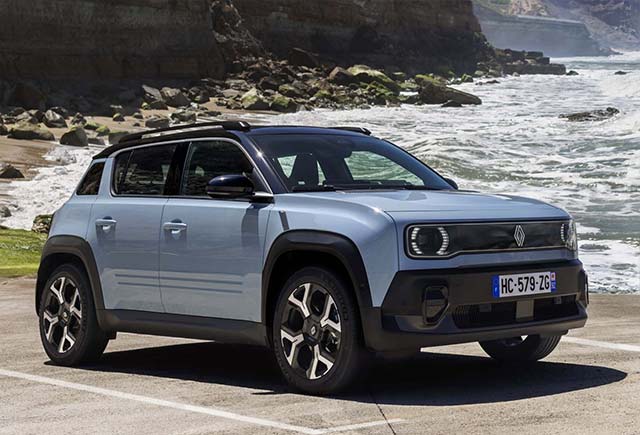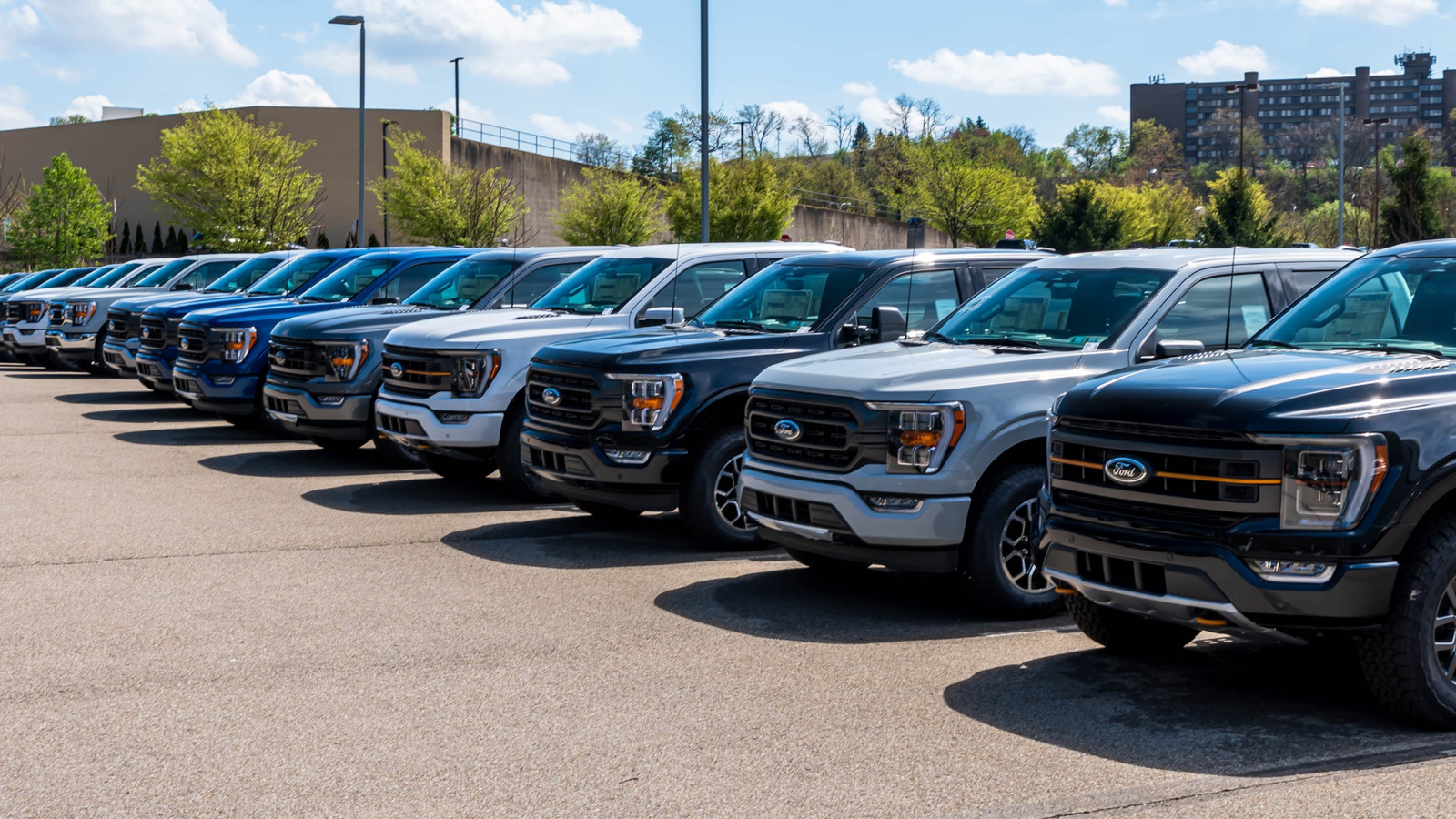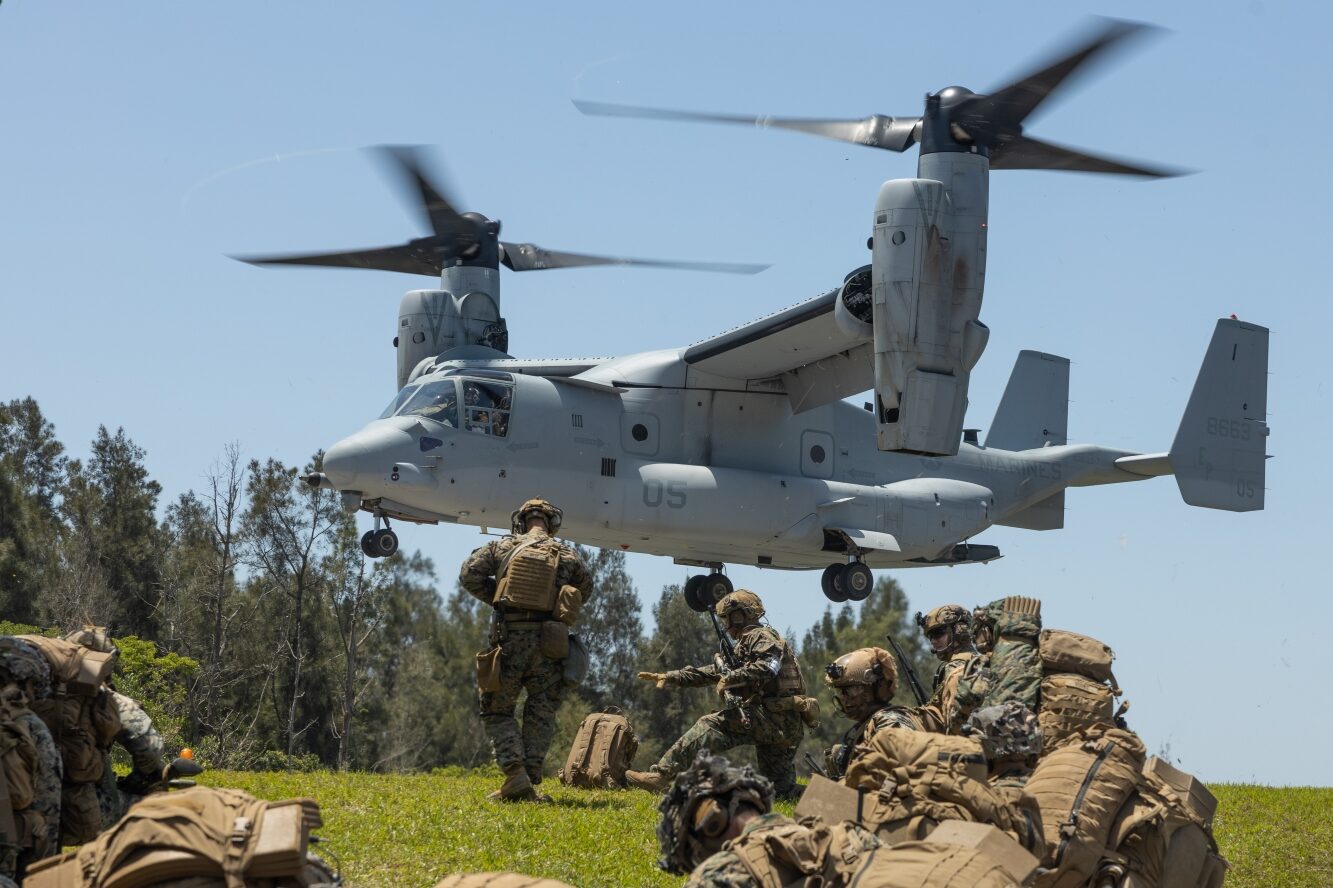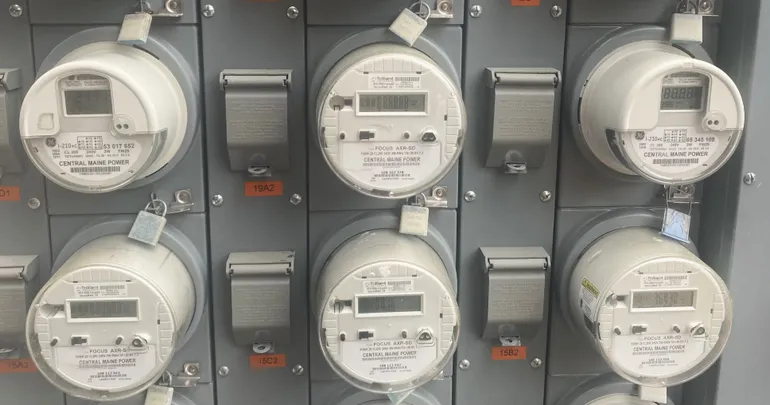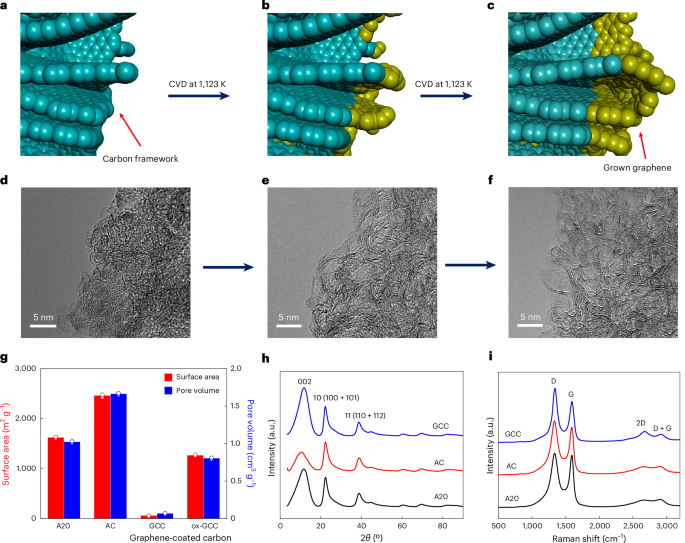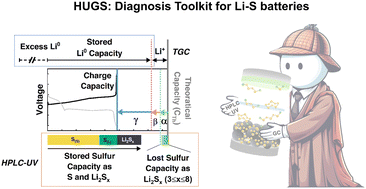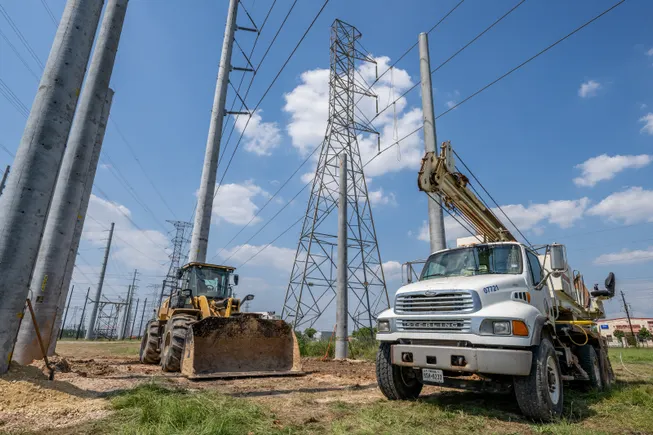Borderlands Mexico: Tariffs, language rule hit cross-border trucking
This week in Borderlands Mexico: Tariffs, language rule hit cross-border trucking; Kuehne+Nagel opens border logistics facility in Texas; Kuehne+Nagel opens border logistics facility in Texas; German automotive supplier expands in Mexico; and Sabine-Neches Waterway project secures $172M grant. The post Borderlands Mexico: Tariffs, language rule hit cross-border trucking appeared first on FreightWaves.

Borderlands Mexico is a weekly rundown of developments in the world of United States-Mexico cross-border trucking and trade. This week: Tariffs, language rule hit cross-border trucking; Kuehne+Nagel opens border logistics facility in Texas; Kuehne+Nagel opens border logistics facility in Texas; German automotive supplier expands in Mexico; and Sabine-Neches Waterway project secures $172M grant.
Tariffs, language rule hit cross-border trucking
President Donald Trump’s tariff policies and new regulations are creating both challenges and opportunities for businesses engaging in U.S.-Mexico commerce.
A looming hurdle for cross-border trucking could be Trump’s recent executive order enforcing existing English-language proficiency rules for commercial truck drivers.
Citing national safety and efficiency imperatives, the policy mandates that truck drivers demonstrate English proficiency in reading traffic signs, communicating with safety officials and adhering to employer protocols.
The mandate could significantly alter U.S.-Mexico trade by causing delays at the border and increased operational costs for shippers relying on Mexican carriers, according to Jordan Dewart, president of Redwood Mexico.
“This is a time where there’s still a prevalence of drivers right now in the U.S., so it’s not a huge concern today. But if these drivers start exiting the market, it could be a concern that ultimately affects capacity because non-English-speaking drivers come from Mexico or they’re coming from India, Pakistan, Russia, all over the world,” Dewart said. “They were the ones that kind of saved our backs during COVID, when we needed to scale up on driver capacity. And now we’re saying, ‘You can’t drive anymore.’”
Redwood Mexico is the cross-border shipping arm of Chicago-based fourth-party logistics provider Redwood Logistics.
Since Feb. 2, Trump has also ordered a series of tariffs against imports from China, Mexico, Canada and almost every other nation that has trade with the U.S. The duties include a 10% baseline reciprocal tariff for all countries, as well as automotive sector-based tariffs.
For Mexico and Canada, Trump imposed a 25% tariff on all imports that do not comply with the United States-Mexico-Canada Agreement.
Trump has not imposed the additional 10% reciprocal tariffs on Canada and Mexico. As a result, the majority of U.S. imports from those two countries that are USMCA-compliant continue to enter the U.S. duty-free.
Despite uncertainties across the supply chain created by tariffs, trucking volumes between the U.S. and Mexico have remained resilient.
“The last 60 days, it’s been a period of relative normality. … We’ve seen volumes really start to pick up, especially, for example, in the retail sector, where it’s kind of like if you don’t ship now, you’re going to miss your back-to-school sales, you’re going to miss the fall, and you’re going to miss even potentially Christmas sales,” Dewart told FreightWaves in an interview. “So we’re seeing retail customers come back for sure.”
Dewart said the on-again, off-again imposition of tariffs has created some uncertainty among his cross-border clients.
“There’s questions being asked from senior leaders, and usually they’re going to logistics or to supply chain and saying, ‘Hey, I need to know what’s going on here. What can we do about tariffs?’ It’s kind of a mad scramble for them to get educated on these things,” Dewart said. “Some products are actually required to pay [tariffs] because they don’t qualify for USMCA or perhaps they qualify, but the customs broker has never gone through the process of actually getting it certified.”
More customers are inquiring about foreign trade zones and reaching out to get to know their customs broker at the border, which has not necessarily been the case in the past, according to Dewart.
“I think for the first time, people are starting to want to reach out to their customs broker and they’re kind of saying, ‘Hey, what should I do? What can I do about these tariffs? What can you advise me to do?” Dewart said. “They’re asking about foreign trade zones. I wouldn’t say there’s a lot of usage of foreign trade zones yet or bonded warehouse space, but there’s a lot of people asking, ‘Hey, is that something that could work for me?’”
Related: Mexico’s largest container port slowly reopens after worker strike
Kuehne+Nagel opens border logistics facility in Texas
Global supply chain provider Kuehne+Nagel has opened a 432,000-square-foot cross-dock facility in Laredo, Texas.
The facility consolidates three existing cross-dock facilities and doubles Kuehne+Nagel’s capacity at the U.S.-Mexico border, according to a news release.
The facility includes 200 trailer parking stalls, 115 dock doors and two drive-in doors for cross-docking, warehousing, transloading and storage. The site includes a 17,500-square-foot foreign trade zone.
“Despite current challenges in global trade, we are confident nearshoring will continue, as it helps customers enhance supply chain resilience, reduces costs, and speeds up distribution,” Nathan Thomas, regional vice president for central area Kuehne+Nagel U.S., said in a statement.
Kuehne+Nagel also has a 363,000-square-foot border logistics facility in El Paso, Texas, as well as facilities in San Diego and Tijuana, Mexico.
Headquartered in Switzerland, Kuehne+Nagel has over 80,000 employees at 1,300 locations in 100 countries. The company has 400,000 customers worldwide.
German automotive supplier expands in Mexico
Knipping Automotive recently opened its third facility in Mexico in the city of Huamantla.
The $18 million plant will create 150 jobs and specialize in the production of plastic components for the automotive industry.
Leingarten, Germany-based Knipping Automotive is a supplier to automakers such as Volkswagen and Audi. The company has 900 employees at six locations in Germany, Hungary and Mexico.
Huamantla is located about 100 miles southeast of Mexico City.
Sabine-Neches Waterway project secures $172M grant
The Sabine-Neches Waterway will receive $172 million from the U.S. Army Corps of Engineers for its channel-deepening project.
The funds will be used to deepen the waterway from its current 40-foot depth to a depth of 48 feet. Once completed, the project will allow larger ships to reach Texas ports and waterway industries.
The Sabine-Neches Waterway is 57 miles long and is the longest federal deep-draft ship channel on the Texas Gulf Coast. The project to deepen the ship channel began construction in 2019 and is estimated to take seven years to complete.
The post Borderlands Mexico: Tariffs, language rule hit cross-border trucking appeared first on FreightWaves.






















